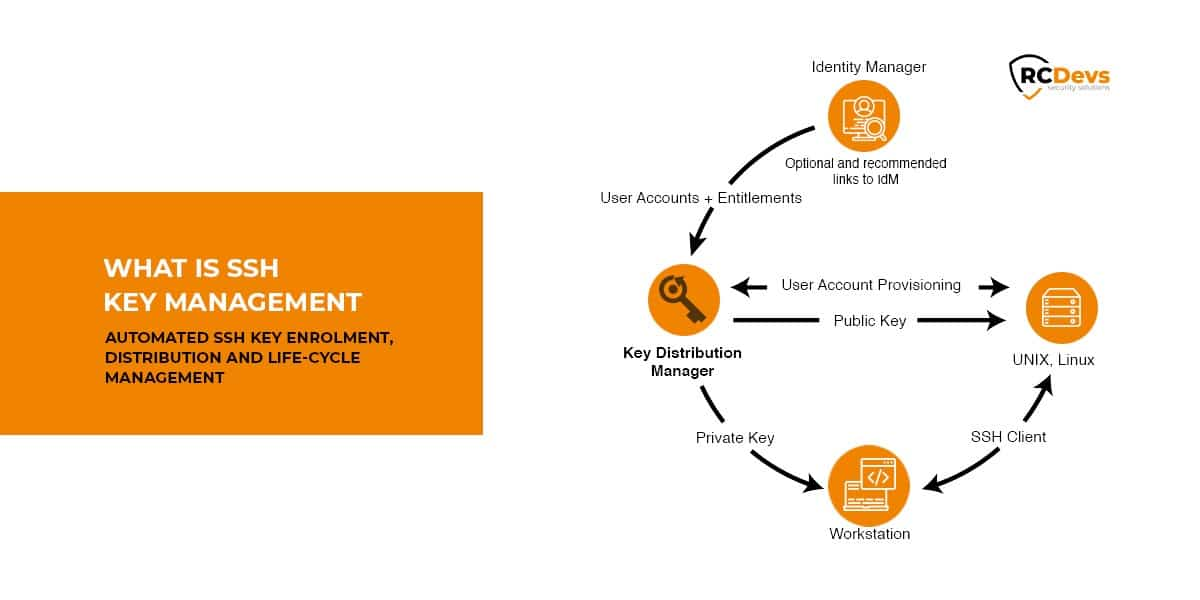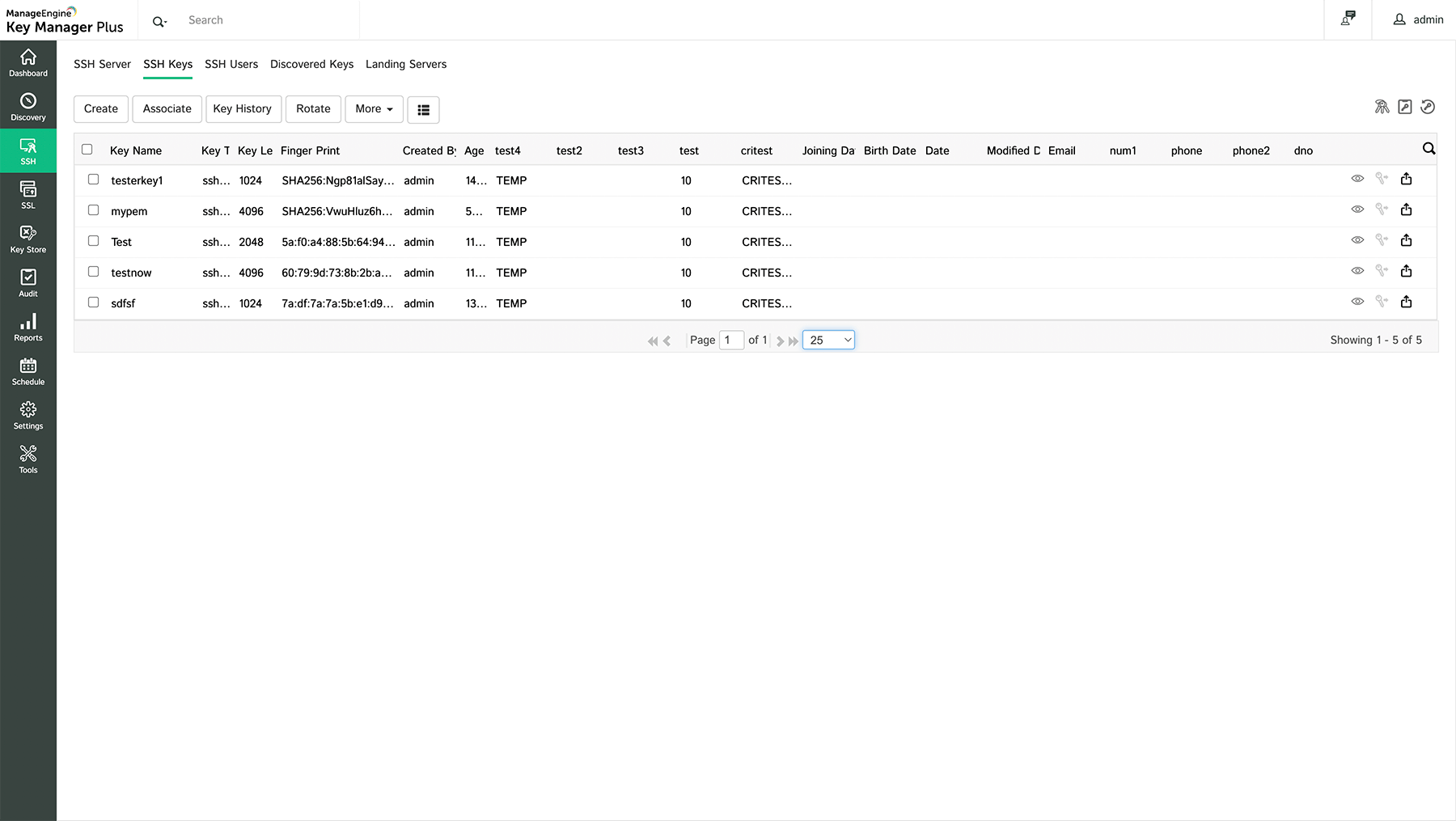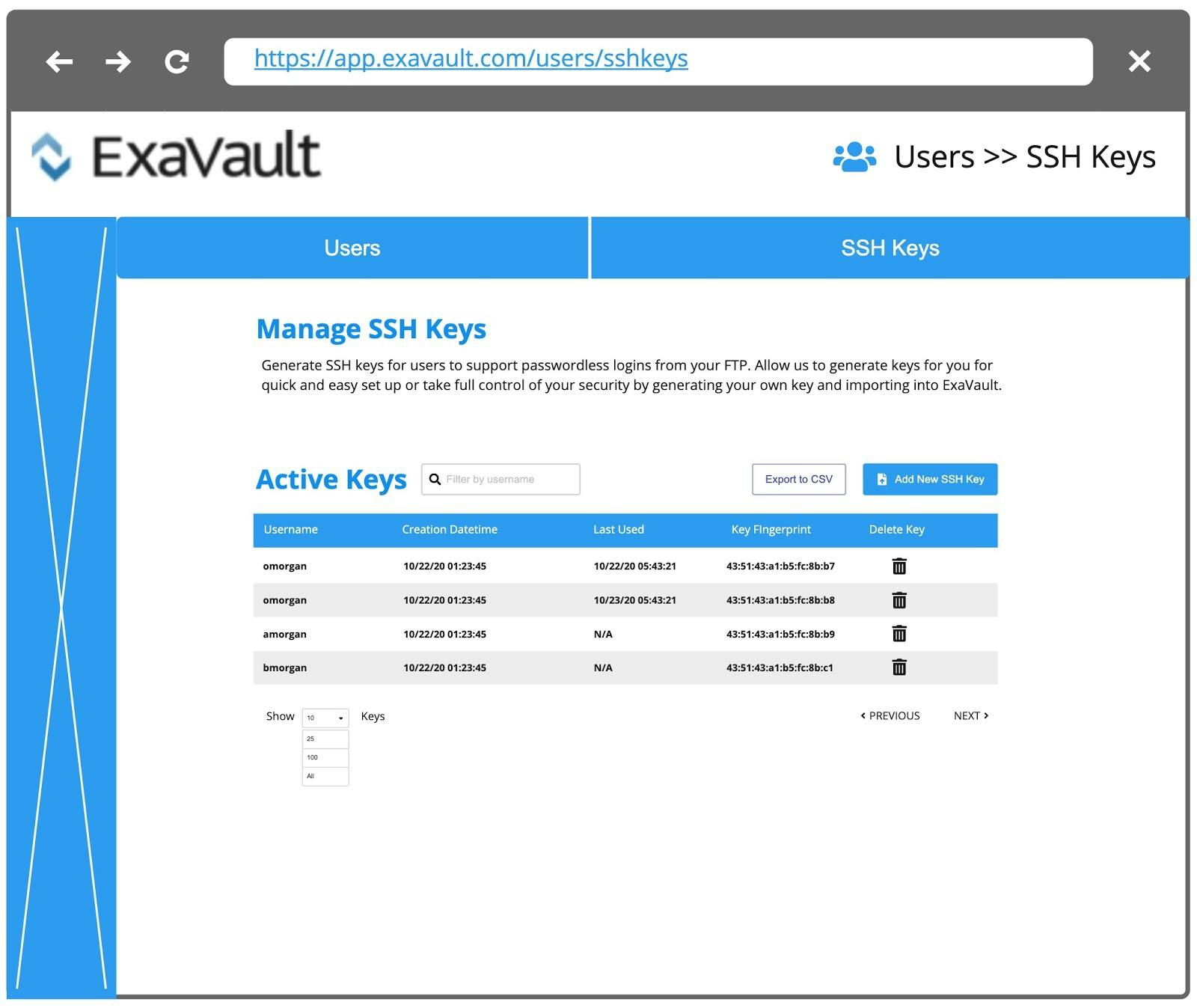RemoteIoT SSH key management has become a cornerstone of secure IoT operations in today's interconnected world. As more organizations embrace remote access to IoT devices, the need for robust SSH key management solutions has never been more critical. Without proper management, SSH keys can pose significant security risks, exposing sensitive data and networks to unauthorized access. This article dives deep into the essentials of remoteIoT SSH key management, offering actionable insights and best practices for securing your IoT infrastructure.
With the rise of IoT devices and remote work, ensuring secure access to critical systems has become a top priority for businesses. SSH keys act as digital keys that grant access to servers and devices, making them an integral part of any security strategy. However, managing these keys across multiple devices and users can be challenging. This guide aims to simplify the complexities of remoteIoT SSH key management, empowering you to enhance your organization's security posture.
Whether you're a system administrator, IT professional, or someone interested in IoT security, this article provides valuable information on how to implement and maintain effective SSH key management practices. By following the strategies outlined here, you can protect your IoT ecosystem from potential threats while ensuring seamless access for authorized users. Let's explore the key aspects of remoteIoT SSH key management and how to achieve optimal security.
Read also:Navigating The Nj Motor Vehicle Driving Test Appointment A Comprehensive Guide
Why is RemoteIoT SSH Key Management Important?
In the realm of IoT security, SSH keys serve as the backbone of secure communication between devices and servers. However, without proper management, these keys can become a double-edged sword, exposing your network to vulnerabilities. RemoteIoT SSH key management is crucial because it helps mitigate risks associated with unauthorized access, key sprawl, and outdated configurations. By implementing a structured approach to managing SSH keys, organizations can significantly enhance their security infrastructure.
SSH keys are often overlooked in security audits, yet they represent one of the most critical access points in any system. Misconfigured or improperly managed keys can lead to data breaches, compliance violations, and operational disruptions. In this section, we'll explore the reasons why remoteIoT SSH key management should be a top priority for any organization relying on IoT technologies. From reducing attack surfaces to ensuring compliance with industry standards, the benefits of effective SSH key management are undeniable.
What Are the Common Challenges in RemoteIoT SSH Key Management?
Managing SSH keys across a large-scale IoT deployment presents unique challenges that many organizations struggle to address. Key sprawl, lack of visibility, and outdated keys are just a few of the issues that can compromise your security. Without a centralized system for tracking and managing SSH keys, it becomes difficult to maintain control over access permissions and ensure compliance with security policies.
Another significant challenge is the manual effort required to manage SSH keys in a growing IoT environment. As the number of devices increases, so does the complexity of managing access credentials. This often leads to human error, which can result in misconfigured keys or forgotten revocations. Additionally, many organizations fail to implement proper key rotation practices, leaving their systems vulnerable to attacks. Let's delve deeper into these challenges and discuss potential solutions.
How Can You Enhance Security with RemoteIoT SSH Key Management?
Implementing a robust remoteIoT SSH key management strategy is essential for safeguarding your IoT infrastructure. One of the most effective ways to enhance security is by adopting automated tools that streamline key management processes. These tools can help you monitor key usage, enforce access policies, and automate key rotations, reducing the risk of human error.
Another critical aspect of enhancing security is ensuring proper authentication and authorization protocols. By integrating multi-factor authentication (MFA) with SSH keys, you can add an extra layer of protection to your systems. Additionally, regular audits and assessments of SSH key configurations can help identify and address potential vulnerabilities. Let's examine some best practices for improving security through remoteIoT SSH key management.
Read also:Michelle Pfeiffer Unveiling The Ageless Icon
Top Strategies for Effective RemoteIoT SSH Key Management
To ensure successful remoteIoT SSH key management, it's essential to adopt a proactive approach that addresses the unique needs of your organization. Below are some strategies that can help you streamline your SSH key management processes and enhance your security posture:
- Implement centralized key management systems to maintain control over access permissions.
- Automate key rotation and revocation processes to minimize manual intervention.
- Enforce strict access policies and regularly review key usage.
- Integrate SSH key management with existing security tools for a cohesive approach.
By following these strategies, you can create a secure and efficient SSH key management framework that meets the demands of modern IoT environments. Let's explore these strategies in greater detail and discover how they can benefit your organization.
Can Proper RemoteIoT SSH Key Management Prevent Data Breaches?
Data breaches remain one of the most significant threats to organizations operating in the IoT space. Poor SSH key management practices often contribute to these breaches, making it imperative to adopt comprehensive security measures. By implementing proper remoteIoT SSH key management, you can significantly reduce the likelihood of unauthorized access and data theft.
Effective SSH key management involves more than just securing access to devices. It also requires continuous monitoring and analysis of key usage patterns to detect anomalies and potential threats. Organizations that prioritize SSH key management as part of their overall security strategy are better equipped to prevent data breaches and protect sensitive information. Let's examine the role of SSH key management in preventing data breaches and explore case studies that demonstrate its effectiveness.
What Are the Best Practices for RemoteIoT SSH Key Management?
Adhering to best practices is crucial for achieving optimal results in remoteIoT SSH key management. These practices encompass everything from key generation and storage to access control and monitoring. Below are some key best practices that can help you enhance your SSH key management efforts:
- Generate strong, unique SSH keys for each device and user.
- Store SSH keys securely using encrypted storage solutions.
- Limit access to SSH keys to authorized personnel only.
- Regularly review and update SSH key configurations.
By incorporating these best practices into your SSH key management strategy, you can establish a robust security framework that protects your IoT infrastructure from potential threats. Let's analyze these practices in more detail and understand their importance in maintaining secure SSH key management.
Tools and Technologies for RemoteIoT SSH Key Management
Advancements in technology have made it easier than ever to manage SSH keys effectively. Numerous tools and platforms are available that offer automated solutions for remoteIoT SSH key management. These tools provide features such as centralized key management, automated key rotations, and real-time monitoring, enabling organizations to maintain control over their SSH key environments.
When selecting a tool for SSH key management, it's important to consider factors such as scalability, ease of use, and integration capabilities. Some popular options include OpenSSH, SSH Key Management Systems (SKMS), and commercial solutions like Venafi and Thales. Each tool has its own strengths and weaknesses, so it's essential to evaluate them based on your specific requirements. Let's explore some of the top tools for remoteIoT SSH key management and discuss their features.
How to Choose the Right Tool for RemoteIoT SSH Key Management?
Selecting the right tool for remoteIoT SSH key management is a critical decision that can impact the overall security and efficiency of your IoT infrastructure. To make an informed choice, consider the following factors:
- Scalability: Ensure the tool can handle the number of devices and users in your environment.
- Integration: Choose a tool that integrates seamlessly with your existing security systems.
- Automation: Opt for tools that offer automated features for key management and monitoring.
- Support: Select a vendor that provides reliable customer support and regular updates.
By carefully evaluating these factors, you can identify the tool that best aligns with your organization's needs and goals. Let's delve deeper into the selection process and learn how to choose the right tool for your remoteIoT SSH key management requirements.
Is RemoteIoT SSH Key Management Necessary for Small Businesses?
While large enterprises often prioritize SSH key management due to their extensive IoT deployments, small businesses may overlook its importance. However, even smaller organizations can benefit significantly from implementing remoteIoT SSH key management practices. By securing access to their IoT devices, small businesses can protect sensitive data, maintain customer trust, and avoid costly security breaches.
Moreover, adopting SSH key management solutions can help small businesses comply with industry regulations and standards. Many regulatory frameworks require organizations to implement robust access controls and key management practices, making it essential for small businesses to prioritize SSH key management. Let's explore the benefits of SSH key management for small businesses and discuss how they can implement effective solutions.
Conclusion: The Future of RemoteIoT SSH Key Management
As IoT technologies continue to evolve, the importance of remoteIoT SSH key management will only increase. Organizations that invest in robust SSH key management solutions today will be better prepared to face the challenges of tomorrow's interconnected world. By adopting best practices, leveraging advanced tools, and staying informed about emerging trends, you can ensure the security and efficiency of your IoT infrastructure.
Remember, SSH key management is not a one-time task but an ongoing process that requires continuous attention and improvement. By remaining vigilant and proactive, you can protect your organization from potential threats and position yourself as a leader in IoT security. Let's embrace the future of remoteIoT SSH key management and create a safer, more secure digital landscape.
Table of Contents
- Why is RemoteIoT SSH Key Management Important?
- What Are the Common Challenges in RemoteIoT SSH Key Management?
- How Can You Enhance Security with RemoteIoT SSH Key Management?
- Top Strategies for Effective RemoteIoT SSH Key Management
- Can Proper RemoteIoT SSH Key Management Prevent Data Breaches?
- What Are the Best Practices for RemoteIoT SSH Key Management?
- Tools and Technologies for RemoteIoT SSH Key Management
- How to Choose the Right Tool for RemoteIoT SSH Key Management?
- Is RemoteIoT SSH Key Management Necessary for Small Businesses?
- Conclusion: The Future of RemoteIoT SSH Key Management


